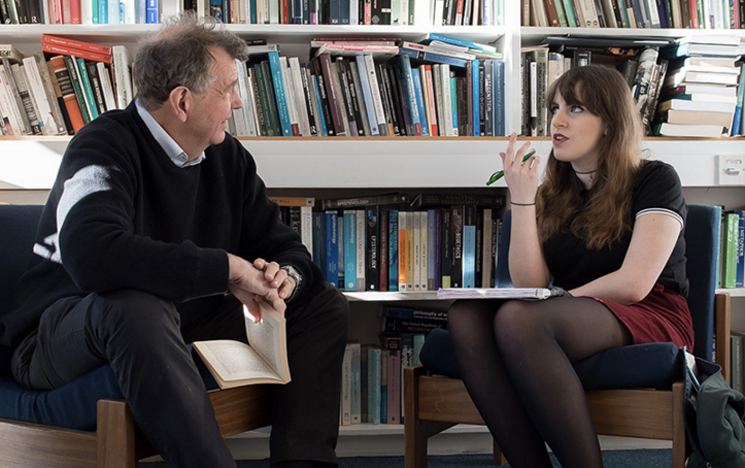Philosophy
Whether you're studying abroad at Sussex for a semester or year, you can browse our philosophy modules below, and if you're unsure what to study, follow our top tips for how to choose a module.

Browse our modules
You can see our full list of philosophy modules below.
Year 1
Year 2
Year 3
Not sure how to choose?
Follow our top tips for choosing your modules. You can also find out about our teaching structure, assessment process and how your credits transfer back to your home institution.
Find out more.
Which school will I study in?
You'll study in the Department of Philosophy, which is part of the School of Media, Arts and Humanities.
Our academics are experts on philosophers such as Aristotle, Kant, Nietzsche, Plato, and Rousseau.
Find out more.
Our philosophy research
Our researchers focus on areas including semantic externalism, the relationship between language and the world, the imagination and the nature of knowledge.
Our research influences the way we teach, and you learn from academics at the forefront of their fields.
Find out more.
Contact us
If you are studying at Sussex for a semester or year and have questions, email sussexabroad@sussex.ac.uk.
*Depending on module/s studied **(Our campus is nine minutes by train from Brighton & Hove) survey by accommodation providers Student Living by Sodexo. Rankings based on full undergraduate degree at Sussex.